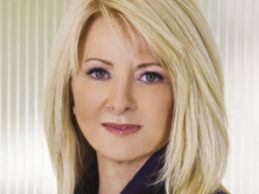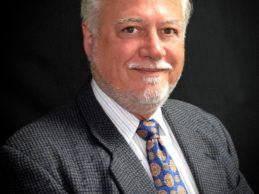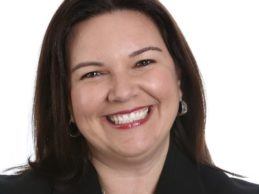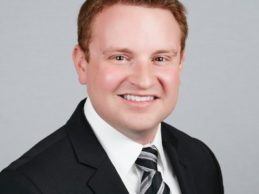Physicians are people, too, as it turns out.Well of course they are, you say, perhaps while acknowledging that we may have expected doctors to perform superhuman feats since television feeds us a steady diet of doctors as boy geniuses, adult geniuses, other types of geniuses and personally troubled but ethically unassailable walking Greek tragedies.In the real world, we know that doctors these days are engaged in very human struggles to pay off massive medical school bills, walk the gauntlet of
Read More
Health IT & Digital Health-Opinion | Op-Eds | Guest Columns | Analysis, Insights - HIT Consultant
Volume to Value: The Transformation Poised to Revolutionize Medicine
With healthcare access a perennial hot-button issue, it becomes imperative to take stock of the major shift happening among providers, one that perhaps has not dominated headlines. As America’s population ages and the need for quality healthcare becomes ever more important on an individual level, new developments in health payment functionality allow for care that’s truly catered to each patient according to need. This system promises to give each patient the course of care that their affliction
Read More
Value-based Care Success: 7 Stages of the Health Data Life Cycle
Back in the day – the late 1960s, when social norms and the face of America was rapidly changing – a familiar public service announcement began preceding the nightly newscast. “It’s 10 p.m. Do you know where your children are?” Today, as the healthcare landscape changes rapidly with a seismic shift from the fee-for-service payment model to value-based care models, there’s a similar but new clarion call for quality healthcare: “It’s 2018. Do you know where your data is?”Compliance with the
Read More
Patient Engagement: 9 Ways to Engage Patients on Their Own Terms
Prioritizing measurable clinical outcomes, defining an evidence-based, codified patient journey, and incenting strict adherence to treatment plans have been the base for many patient engagement initiatives. These seem to be logical ways to improve outcomes, reduce costs and encourage patients to follow post-care plans mapped to a journey designed to yield specific clinical measures. Yet despite the industry’s focus on patient centricity, the healthcare industry is still struggling to realize the
Read More
Future of Medicine: Why Everyone in Healthcare is Looking at Your Wrist
When you look at your wrist, you’re looking at the future of medicine. Wrists offer the potential that nothing else in the health technology world can offer: round-the-clock, non-intrusive contact. For people enduring chronic illness and doctors treating it, this can mean, in the near future, a seamless, two-way flow of information about medication use and the circumstances where health events, such as asthma attacks, or hypoglycemic events occur.Children with asthma, for instance, using a smart
Read More
What The Patient Engagement Metrics Aren’t Telling You
The tech industry loves to tout high-level metrics to garner attention for apps: the success of an app is often demonstrated by quoting staggering numbers of subscribers, weekly views, in-app session length, number of downloads, monthly average users, etc. And these statistics are not irrelevant -- they are useful for gauging product performance and often correlate to a successful product. For apps driven by ad-revenue, they are sometimes the most important metrics.But as I address elsewhere,
Read More
Optimizing Revenue Cycle Management – What Will It Take to Get There?
The U.S. healthcare system is undergoing a major transformation, from many freestanding hospitals and individual practices to fewer large, integrated healthcare systems. One motivating factor is the promise of greater efficiencies when it comes to delivering more holistic patient care and improving core operational processes.Revenue cycle management is one process that’s primed for improvement. Poor billing practices can cost hospitals millions of dollars due to lost reimbursement or the
Read More
4 Ways Healthcare IT Can Save Rural Hospitals
In business, disruption is often seen as a good thing, e.g., digital photography disrupting Eastman Kodak’s business so significantly that the company has scrambled in recent years just to stay afloat, the thing they once did better than anyone now largely irrelevant.So, disruption is negative for employees of old technology companies, but it’s a boon for workers in cutting-edge businesses and generally for consumers as well. Those who benefit greatly outnumber those who don’t.And disruption
Read More
Does the Fax Machine Still Have A Place in Modern Healthcare?
Fax machines have been a common fixture in medical practices across the country since they reached peak popularity in the late 1980s; the convenience, reliability, and security of faxing meant it was, and still is, the communication medium of choice for the majority of healthcare organizations. But, technology has come a very long way in past 30 or so years, and expectations have changed - what was deemed to be convenient, reliable, or secure two or three decades ago, might not be anymore. So,
Read More
How to Successfully Manage the Staffing Costs of Migrating to a New EHR
Few decisions are as important or as daunting as the one that leads to the implementation of a new EHR. When replacing best-of-breed clinical applications with an integrated EHR, a successful transition involves managing, not just technology but, equally as important, employees across multiple teams. The best and brightest in your organization are asked to focus on this initiative, but this new assignment leaves a gap in the maintenance and management of a healthcare organization’s legacy
Read More










